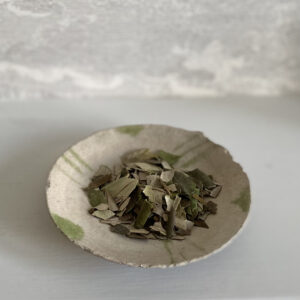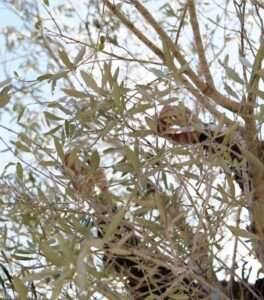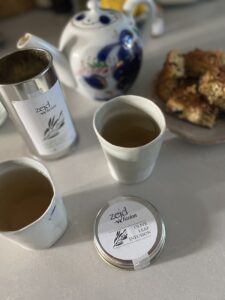olive leaf infusion
never heard of it!
To be fair, we hadn’t either. It was only because we love herbal teas, that we discovered olive leaf infusion by chance while we were buying some olives at House of Zejd in Beirut. We haven’t come across many Lebanese who drink it either. However, its mellow soothing taste won us over when we sampled some in Lebanon.

a by-product
Pruning is a key component in maintaining healthy olive trees. It takes place in February or March in Lebanon and once done allows the air to circulate, minimising the chances of disease. Farmers risk losing their crop to airborne diseases if careful pruning doesn’t happen. The wood is useful as a source of fuel and the ashes can be used as fertiliser. Since nothing is wasted, the best leaves are selected and dried. Youssef Fares, owner of Zejd, turns these beautiful leaves from the souri olive trees into something people can enjoy.

photo courtesy of Youssef Fares
health benefits?
Olive leaves contain an active compound called oleuropein. Pliny promoted the idea of chewing the leaves to heal mouth ulcers. Christina Stapley, in The Tree Dispensary, refers to the use in 17th century England of an application of pounded olive leaves in vinegar to reduce inflammations. Scientific research is still exploring the specific medicinal benefits of the leaves. Since the polyphenol oleuropein is more significant in the leaves than in the fruit, its potential is exciting. Some studies have shown that it can help to reduce blood pressure and boost our immune systems.

a typical Lebanese drink?
Not very typical. More likely to be drunk in rural areas for medicinal reasons. As herbal tea drinkers ourselves, we’re delighted the mellow taste of this infusion has appealed to so many of our customers. The fact that you can re-infuse the leaves for at least three cups is also popular as we all look to make the most of our purchases.
